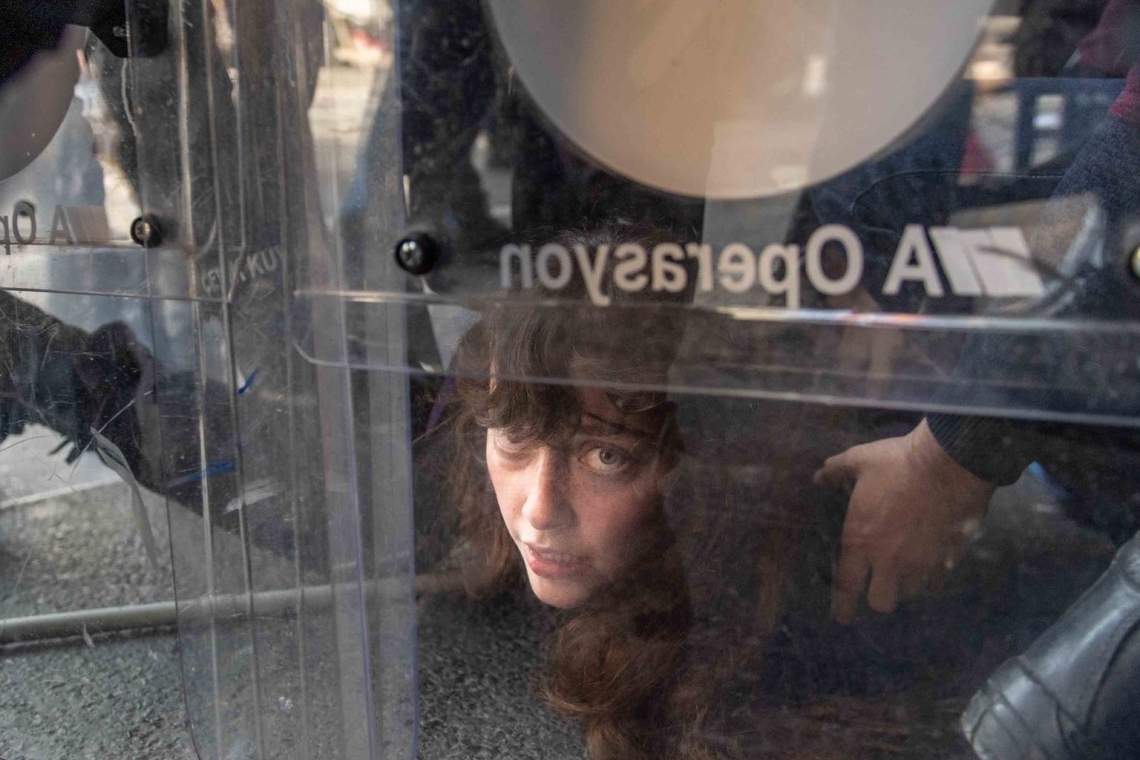Photo: Bülent Kılıç
MLSA - Turkey’s Council of State has once again annulled a controversial police directive that banned audio and video recording during police interventions in public spaces—this time in response to an individual legal challenge by journalist and human rights defender Evin Barış Altıntaş. The ruling by the Council’s 10th Chamber reaffirms previous annulments issued in cases brought by the Turkish Journalists’ Union (TGS) and the Diyarbakır Bar Association, declaring the directive wholly invalid.
The contested directive, issued by the General Directorate of Security in April 2021, barred citizens and journalists from recording footage of police officers on duty, citing the protection of personal data. It immediately drew criticism from media and civil society organizations for violating press freedom and the right to information.
In the lawsuit filed by Altıntaş and prepared by the legal team of the Media and Law Studies Association (MLSA), the directive was argued to be unconstitutional and a disproportionate restriction on freedom of expression and the press. The Ministry of Interior and the police defended the measure as an internal regulation intended to protect officers' personal data.
Council of State: Fundamental rights can only be restricted by law
The court found that the directive aimed to prevent audio and video recordings of police actions during public interventions, thereby imposing a restriction on freedom of expression and the right to access information. Citing Article 13 of Turkey’s Constitution, the court emphasized that fundamental rights and freedoms can only be limited by law—not by executive orders or internal directives.
The Council further ruled that the directive was not merely an internal regulation but had a direct impact on the public, thus qualifying as a binding administrative act subject to judicial review.
The ruling recalled that the same directive had already been overturned in an earlier case, a decision later upheld by the Council of State’s Board of Administrative Litigation Chambers, making it legally binding.
“Press freedom cannot be restricted by executive order”
In its written opinion, the court underlined the essential public function of the press, stating: “The press’s duty to inform the public requires the free circulation of news and ideas that serve the public interest. For this reason, any restrictions on freedom of expression and the press must conform to both the letter and spirit of the Constitution. The restriction imposed by the directive violates these principles.”
The court unanimously annulled the directive and ordered the state to pay Altıntaş a total of 56,444 Turkish lira (roughly $1,750) in legal fees and attorney’s costs. The ruling renders the police’s 2021 directive, officially known as Circular No. 2021/19, entirely void.
Why this second annulment matters
The initial version of the police ban was annulled in previous lawsuits brought by professional organizations. However, because Turkish courts treat each challenge as a separate case file, the Council of State has issued multiple rulings on the same directive over time.
What sets this latest ruling apart is that it was based on an individual application, not an institutional one. This establishes that the directive violated not only the rights of professional bodies, such as press unions and bar associations, but also the rights of private individuals. The case was also reviewed in a full hearing, making the ruling particularly significant in terms of jurisprudence.
Background
The General Directorate of Security issued Circular No. 2021/19 on April 27, 2021, instructing officers to prevent audio and video recordings of police while on duty, citing personal data protection laws. The directive was widely condemned by journalists, legal experts, and rights groups as a direct interference with press freedom and public oversight of law enforcement.
The Council of State has since consistently ruled that the directive violates both the Turkish Constitution and the European Convention on Human Rights.



